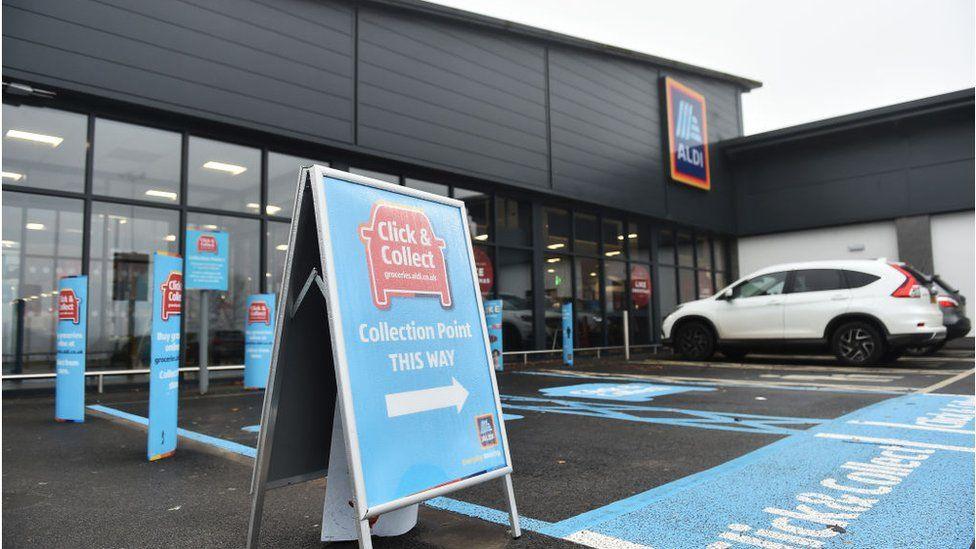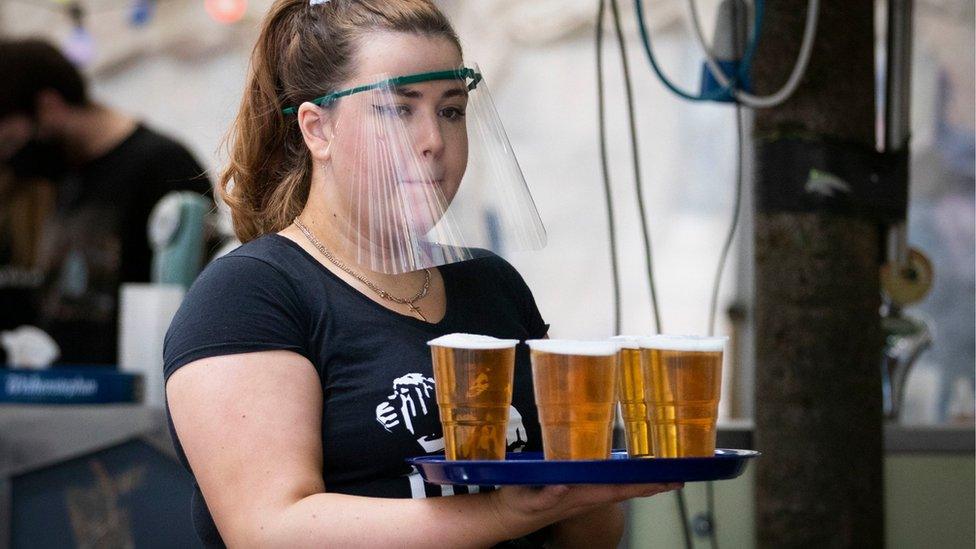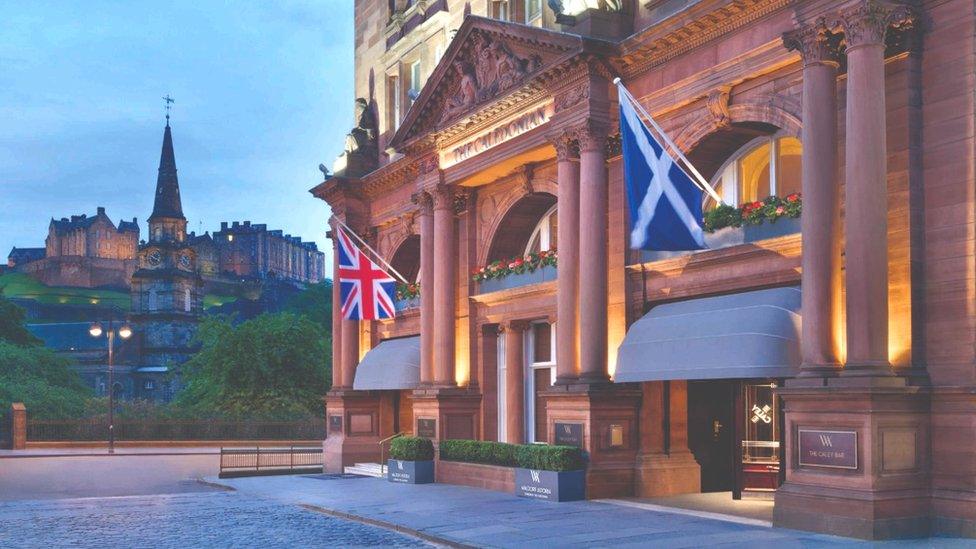Covid In Scotland: business clicks but doesn’t collect
- Published

As public compliance dips below the level of last spring's lockdown, attention shifts to business to take the burden of infection control.
New funds are available, though it's not clear where they come from, and they are focussed on firms that can be easily identified.
The many smaller businesses that aren't easily reached - from taxi drivers to wedding organisers - are having to wait even longer for government support
There is a mathematical formula at work in the massive national mission to get the 'R' rate of infection down.
In manipulating the formula, the variable over which ministers have least control is compliance by the public.
And if that is low, it means more has to be done with the elements in the formula which can compensate for it .They're the ones over which ministers have more control.
These include the regulated parts of the economy which can influence public behaviour. Most regulated of all is alcohol, which helps explain why businesses based on out-of-home consumption take a disproportionate burden.

Alcohol sales is the most regulated of trades and has been hit by restrictions
No controls have been placed on drinking at home. Put simply, if people are drinking at home, they're not going out, and that's the outcome that public policy seeks.
In the current lockdown, Scots can buy alcohol for takeaway from bars and restaurants, whereas English people cannot. That divergence could be closed, as ministers seek to set the alcoholic part of the formula as close as possible to zero.
Attention then shifts to other hospitality and retail, and that is where the Scottish cabinet is also turning its attention at its Tuesday morning meeting
To get people to comply with the "stay at home" message, to reduce footfall and road traffic, 'click and collect' is now in ministerial sights.
It's a tribute to the ingenuity of business that it has adapted online and customer behaviour to the point that click-and-collect is seen as a public health threat.
Government support
A joint letter by trade bodies representing smaller independent stores, garden centres, booksellers and electrical retailers on Monday pleaded with the Scottish government not to cut off this 'lifeline'.
The compensating part of the formula for such businesses is the government support regime in grants. If they are required to close down, they should be getting compensation.
The allocation of money to sectors of the economy has become ever more complex, But allocation is becoming increasingly dislocated from actual money reaching bank accounts.
On Monday, Scotland's finance secretary Kate Forbes announced top-up grants, with a headline-grabbing £25,000 aimed at larger hotels. That's more than in England, pointed out the Scottish National Party politician.
For others in hospitality, leisure and retail, the most they could hope for is a £9,000 top-up on top of grants off £2,000 or £3,000 per month required to close. That's in line with sums available to English businesses from the UK Treasury.
Where this money comes from is not clear. Somewhere in the system, there is supposed to be £375m attaching to the expanding Holyrood block grant from the Treasury, but neither Treasury nor the Scottish government seem to be able to say where that money is.
That other formulaic part of government spending, named after Lord Joel Barnett, a Labour Treasury minister in the 1970s, is becoming more mysterious than predictable and functional.
Either the money is there, and Kate Forbes has found it, or it's not there, and she's taking a big gamble on spending a lot of money without knowing she can meet her legal obligation to balance the books this fiscal year.

Hotels have recieved government support
The Scottish finance secretary's apparent generosity to larger hotels forced to close by the lockdown rules is seen by some business lobbies as an easy way to get the money out the door. That's in contrast with £220m announced on 9 December, which is looking increasingly stuck in bureaucracy.
The assurance from Scottish government officials continues: "We were clear in the announcement then that this funding would be available to businesses in January and will be open to applications from an estimated 100,000 eligible businesses, including taxi drivers and others who are self-employed."
But Conservative MSPs on Monday highlighted a government spreadsheet that appears to show few of the 30 schemes promised show much sign of opening for business to access funds this month. Only seven of them have launched, they say.
The one for taxis and private hire vehicle drivers was due to open on Monday, but there was little sign of it turning up on the financial taxi rank.
Where companies lack connection with government data, it's becoming more difficult to identify those in genuine need and attach relief funds to them.
Two points of connection are effective: tax collection and business rates. Therefore much of the money has gone into systems that can be operated through HM Revenue and Customs (the furlough scheme and self-employed income support), and those with business rateable premises (most business grants so far).
HMRC is not available to the Scottish government to link payments for those that don't pay business rates. So officialdom seems to be struggling to find a fraud-resistant mechanism with which to get money to mobile hairdressers, taxi drivers, coach operators, travelling showpeople, outdoor tourism, wedding organisers and suppliers, those who became self-employed in the past two years, and so on.
The survival of such businesses is not essential to the formula of getting the R infection rate down. But as they burn through cash, without government support, they are at increasing risk of becoming collateral damage. And the survival of such firms will be important to economic recovery.
